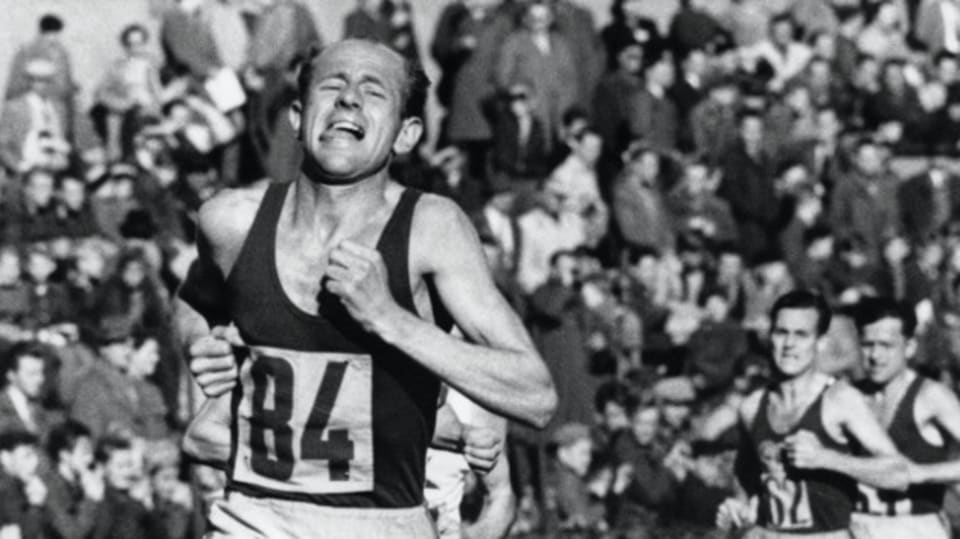
Zatopek delighted the crowd whenever he raced by virtue of three great traits – firstly, he was a champion who enjoyed his sport immensely. Secondly, he looked exhausted during the races, the embodiment of a hard trier. And thirdly, he was, clearly, a delightful and friendly person, someone who charmed both spectators and opponents alike.
He was entered for both the 5,000m and 10,000m, and expected to win neither. The 10,000m world record holder Viljo Heino was the favourite but, as it turned out Zatopek controlled the race, churning out lap after lap at a steady 71-second pace. Nobody could live with him, and even the exhausted Heino was eventually forced to drop out, a beaten man.
Zatopek had trained for moments like this. He famously insisted on running whatever the conditions, whether searing heat or deep snow, and would often wear heavy boots rather than running shoes, just to increase the effort. Now, at the 1948 Games and in front of a huge Wembley audience, all that effort began to pay off.
By the end, when Zatopek's showmanship led to him sprinting across the line, he had lapped all but two of his opponents and won the race by an incredible 300m.
He celebrated by serenading his girlfriend, and later wife, from under her window in the Athletes’ Village. As she looked down, he waved the gold medal before accidentally dropping it in a swimming pool. Undeterred, the new champion stripped off his clothes and jumped in to rescue his medal.
He was not so lucky in the 5000m final, though. Perhaps weary from his efforts in the longer race, he was 50m adrift on the final lap before putting on a sudden sprint. For the last 200m of the race, he was gaining on the leader, Belgian Reiff Gaston, with every stride, but the finishing line came a few seconds too soon. Gaston held on by a metre to take his country's first track and field gold medal; Zatopek meanwhile went home and planned for another extraordinary Olympic performance four years hence.
